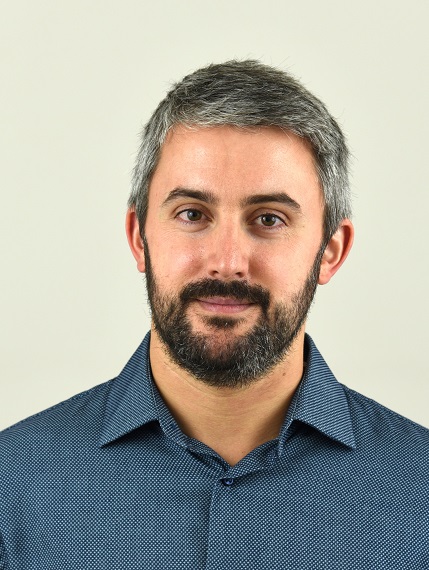
Craig Duvall, Ph.D.
- Professor of Biomedical Engineering
- Cornelius Vanderbilt Professor, Vanderbilt University Biomedical Engineering
- Professor of Ophthalmology and Visual Sciences
Craig Duvall, Ph.D.
- Professor of Biomedical Engineering
- Cornelius Vanderbilt Professor, Vanderbilt University Biomedical Engineering
- Professor of Ophthalmology and Visual Sciences
615-322-3598
craig.duvall@Vanderbilt.Edu
Research Program
This phase II trial studies how well inotuzumab ozogamicin works in treating younger patients with B-lymphoblastic lymphoma or CD22 positive B acute lymphoblastic leukemia that has come back (relapsed) or does not respond to treatment (refractory). Inotuzumab ozogamicin is a monoclonal antibody, called inotuzumab, linked to a toxic agent called ozogamicin. Inotuzumab attaches to CD22 positive cancer cells in a targeted way and delivers ozogamicin to kill them.

Quincy Quick, PhD
- Associate Professor of Biological Sciences
- Tennessee State University
Quincy Quick, PhD
- Associate Professor of Biological Sciences
- Tennessee State University
615-322-2555
quincy.quick@vumc.org
Research Program

Ruben Barricarte, PhD
- Assistant Professor of Medicine
- Assistant Professor of Pathology, Microbiology and Immunology
Ruben Barricarte, PhD
- Assistant Professor of Medicine
- Assistant Professor of Pathology, Microbiology and Immunology
615-322-5762
ruben.m.barricarte@vumc.org
Research Program

Jeffrey Tosoian, MD, MPH
- Assistant Professor of Urology
Jeffrey Tosoian, MD, MPH
- Assistant Professor of Urology
jeff.tosoian@vumc.org
Research Program

Robert Ramirez, DO
- Associate Professor of Medicine
Robert Ramirez, DO
- Associate Professor of Medicine
robert.ramirez@vumc.org
Research Program

Steven Townsend, PhD
- Associate Professor of Chemistry
Steven Townsend, PhD
- Associate Professor of Chemistry
615-322-8171
steven.d.townsend@vanderbilt.edu
Research Program
This is an umbrella study evaluating the efficacy and safety of multiple treatment
combinations in participants with metastatic or inoperable locally advanced breast cancer.
The study will be performed in two stages. During Stage 1, four cohorts will be enrolled in
parallel in this study:
Cohort 1 will consist of Programmed death-ligand 1 (PD-L1)-positive participants who have
received no prior systemic therapy for metastatic or inoperable locally advanced
triple-negative breast cancer (TNBC) (first-line [1L] PD-L1+ cohort).
Cohort 2 will consist of participants who had disease progression during or following 1L
treatment with chemotherapy for metastatic or inoperable locally-advanced TNBC and have not
received cancer immunotherapy (CIT) (second-line [2L] CIT-naive cohort).
Cohort 3 will consist of participants with locally-advanced or metastatic HR+, HER2-negative
disease with PIK3CA mutation who may or may not have had disease progression during or
following previous lines of treatment for metastatic disease (HR+cohort).
Cohort 4 will consist of participants with locally-advanced or metastatic HER2+ /HER2-low
disease with PIK3CA mutation who had disease progression on standard-of-care therapies (HER2+
/HER2-low cohort).
In each cohort, eligible participants will initially be assigned to one of several treatment
arms (Stage 1). In addition, participants in the 2L CIT-nave cohort who experience disease
progression, loss of clinical benefit, or unacceptable toxicity during Stage 1 may be
eligible to continue treatment with a different treatment combination (Stage 2), provided
Stage 2 is open for enrollment.
This is a global, multicenter Phase 1/3 study to evaluate the efficacy and safety of
selinexor plus ruxolitinib in JAK inhibitor (JAKi) treatment-nave myelofibrosis (MF)
participants. The study will be conducted in two phases: Phase 1 (open-label) and Phase 3
(double-blind). Phase 1 (enrollment completed) was an open-label evaluation of the safety and
recommended dose (RD) of selinexor in combination with ruxolitinib and included a dose
escalation using a standard 3+3 design (Phase 1a) and a dose expansion part (Phase 1b). In
Phase 3, JAKi treatment-nave MF participants are enrolled in 2:1 ratio to receive the
combination therapy of selinexor + ruxolitinib or the combination of placebo + ruxolitinib.


